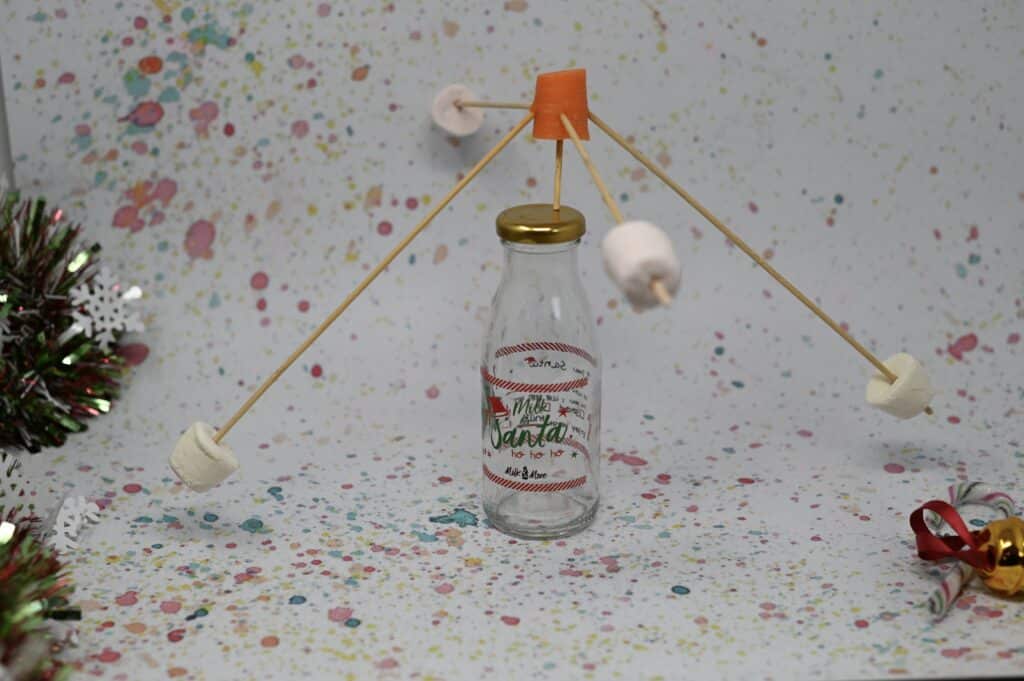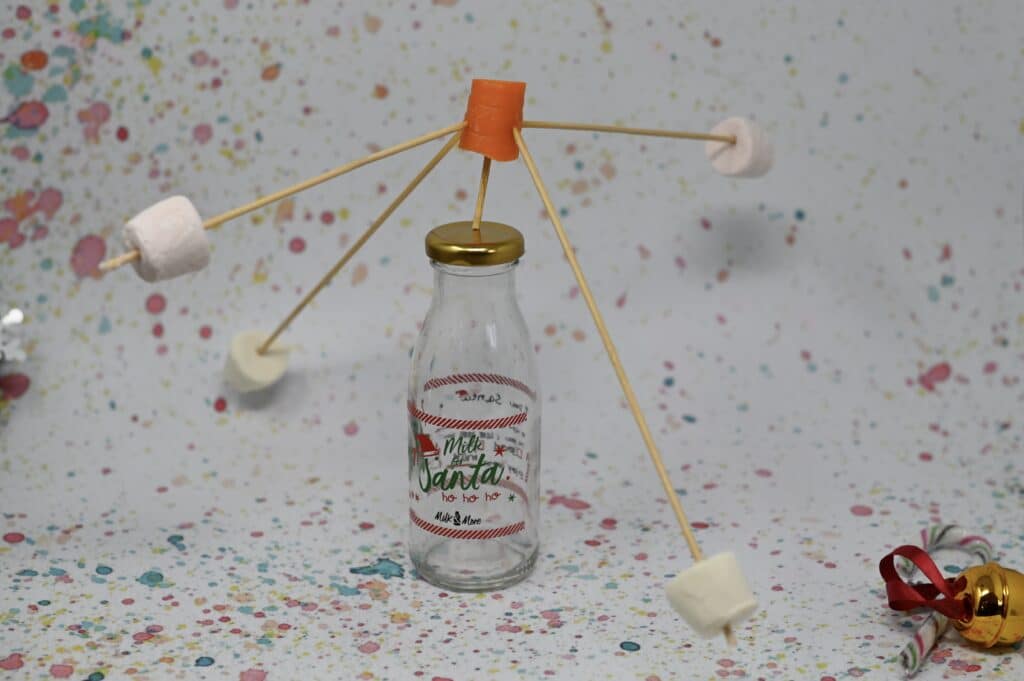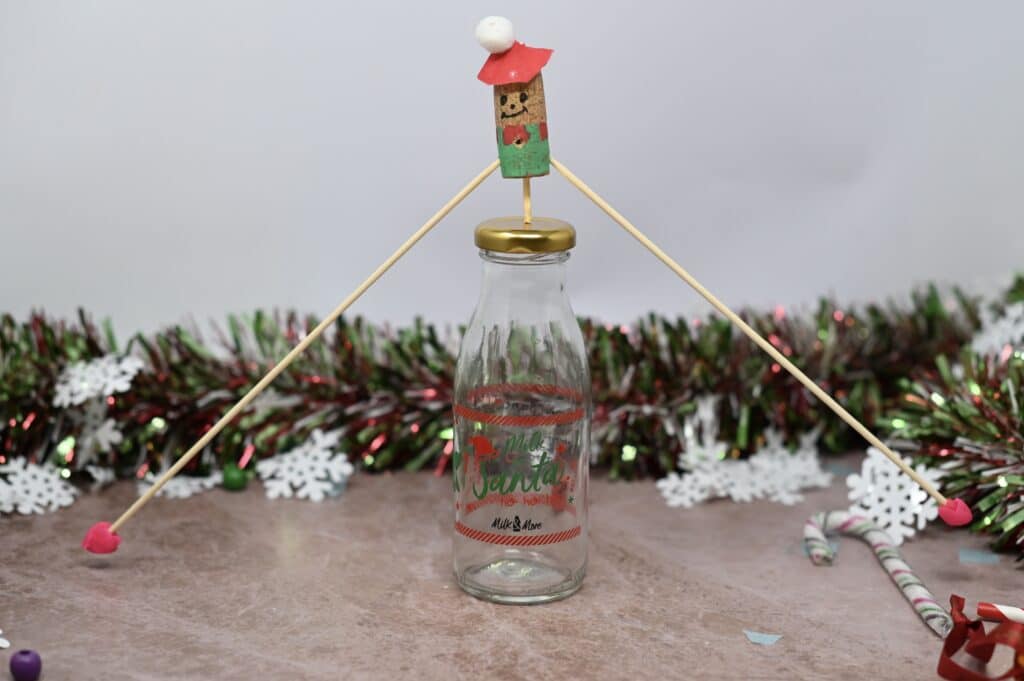Have you ever wondered how balancing toys work? You can find out with this simple marshmallow balancing STEM challenge! It’s a great activity for learning about gravity and centre of mass.

You’ll need
A bottle with a lid
5 wooden skewers
4 Marshmallows
A Carrot
Instructions
Cut a small piece of carrot and place a piece of wooden skewer about 2 inches long into the bottom. Most of the skewer should be outside the acrrot.
Place the skewer on the top of the bottle, it will fall over.
Push the pointed end of two skewers into opposite sides of the carrot and push a marshmallow onto the end of both.
Place the carrot onto the bottle. It should now balance!
Add two more marshmallow skewers to the carrot and see if it still balances.
Experiment by moving the marshmallows up and down the skewers.

Why did this work?
At first, the carrot didn’t balance on the bottle because it was cut unevenly and had a thin skewer stuck in the bottom, making it wobbly. The carrot stays balanced when its centre of mass (the point where all the stuff in the carrot is evenly distributed) is directly above the skewer. Gravity pulls down, and if the centre of mass isn’t lined up over the skewer in the bottom it creates a turning force that tips the carrot over.
By adding more skewers with marshmallows around the sides of the carrot, we were able to change the centre of mass. Too far away from the bottle and that turning force caused by gravity keeps tipping it over, but by adjusting the skewers and marshmallows bit by bit, we brought the centre of mass back over the bottle and the skewer at the bottom, keeping the carrot balanced.
Spreading out the marshmallows lower and wider on the skewer made it more stable, like how a wide-bottomed mug is harder to tip over.
Extra Balance Toy Challenge
Experiment with different materials. We made a fun elf balancing toy with a cork as the elf body and play dough on the ends of the skewers.

Play dough is a great material to use in the ends as it’s easy to shape and add or remove bits.
Last Updated on December 5, 2024 by Emma Vanstone

Leave a Reply